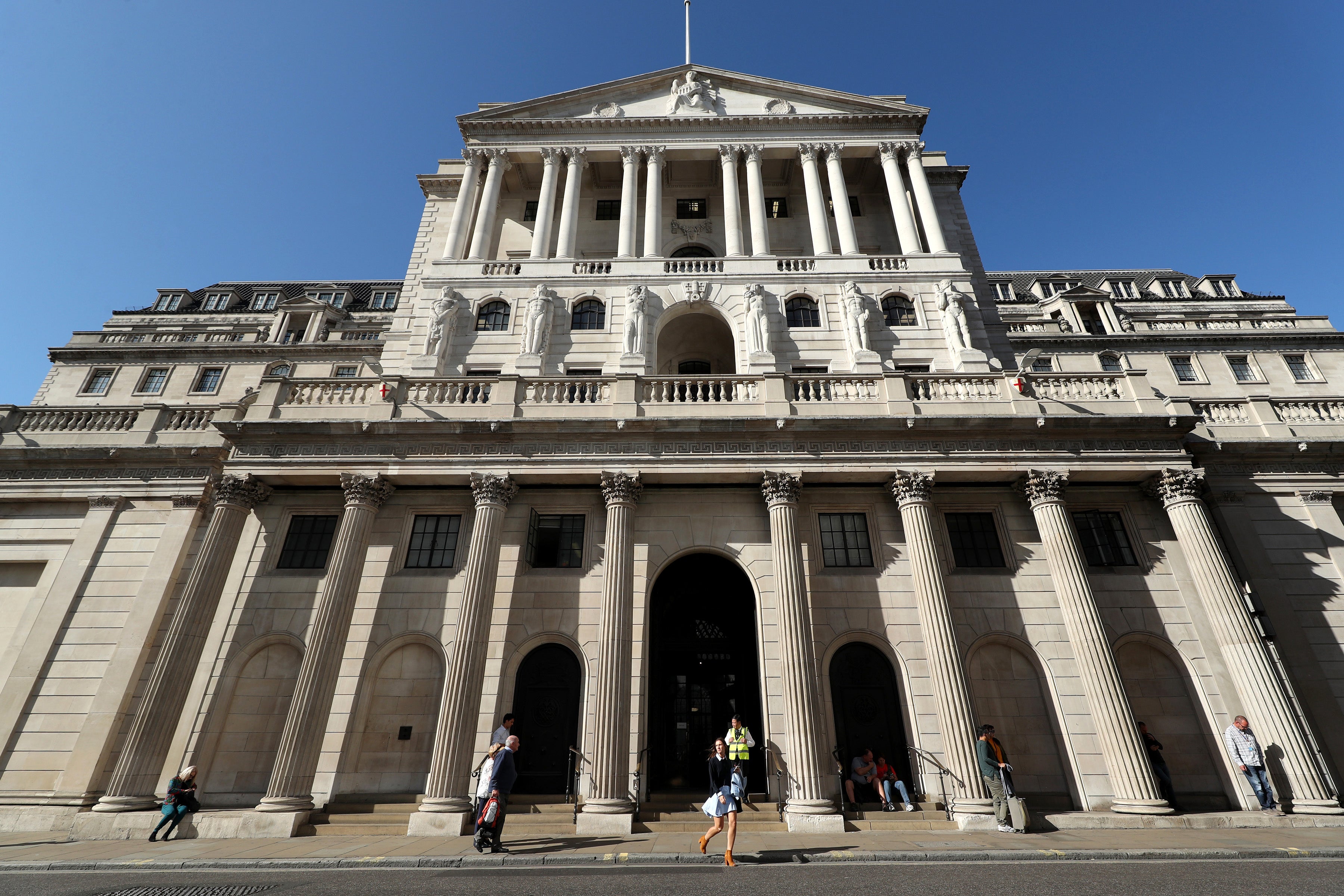Bank launches first climate change stress test for lenders and insurers
The bank will use three scenarios for the test of early action by governments to tackle climate change, late action and no extra action.

Your support helps us to tell the story
From reproductive rights to climate change to Big Tech, The Independent is on the ground when the story is developing. Whether it's investigating the financials of Elon Musk's pro-Trump PAC or producing our latest documentary, 'The A Word', which shines a light on the American women fighting for reproductive rights, we know how important it is to parse out the facts from the messaging.
At such a critical moment in US history, we need reporters on the ground. Your donation allows us to keep sending journalists to speak to both sides of the story.
The Independent is trusted by Americans across the entire political spectrum. And unlike many other quality news outlets, we choose not to lock Americans out of our reporting and analysis with paywalls. We believe quality journalism should be available to everyone, paid for by those who can afford it.
Your support makes all the difference.The Bank of England has unveiled its first-ever stress test to scrutinise the resilience of Britain’s biggest banks and insurers against climate change risks over the next 30 years.
The test will look at the two key risks facing the sector from climate change – the impact of the move to a net zero economy as well as the physical effects of global warming, such as storms, flooding and fires.
The bank will use three scenarios spanning 30 years of early action by governments to tackle climate change, late action and no extra action.
The end result will be more robust management of climate related financial risks across the sector
The UK’s seven biggest lenders will take part, including Lloyds Banking Group, Barclays NatWest Group and Nationwide Building Society.
Insurance giants including Aviva, Axa Direct Line RSA and Legal & General will also be part of the test.
But the bank said the test – to be carried out every other year – is only “exploratory” for now and, unlike its regular annual stress tests, will not be used to set how much cash banks need to set aside on their balance sheets as a cushion against risks.
The bank will publish the results of the test in May next year.
Andrew Bailey governor of the Bank of England, said: “Today’s exercise will help us size the risks from climate change for both the largest banks and insurers as well as the financial system as a whole.”
“The end result will be more robust management of climate-related financial risks across the sector,” he added.
The test will look at gauging the size of risks to bank credit books and to the assets and liabilities of insurers.
While it will not be used to determine capital requirements, the bank said the test will help it better model climate-related risks and inform future regulation.
The bank’s climate scenario analysis may be a useful exploratory exercise, but it’s time to move from exploring to acting
Sarah Breedon, the bank’s executive sponsor for climate change, said: “Though fiendishly complicated, climate scenario analysis is a critical part of our toolkit to address future uncertainty about what might happen to our planet, our economy and our financial system.
“Some scenarios show the most efficient pathway to net zero while others highlight the risks of late or insufficient action.
“By highlighting the risks of tomorrow, they can help guide actions today.
“I encourage all firms, not just those participating, to engage in and learn from this exercise.”
But sustainable economy campaign group Positive Money warned the bank’s test does not go far enough and called for it to launch climate capital requirement rules.
David Barmes, Positive Money senior economist, said: “The bank’s climate scenario analysis may be a useful exploratory exercise, but it’s time to move from exploring to acting.
“By delaying the implementation of climate capital rules, the bank is undermining its duty to protect financial stability and support net zero.”